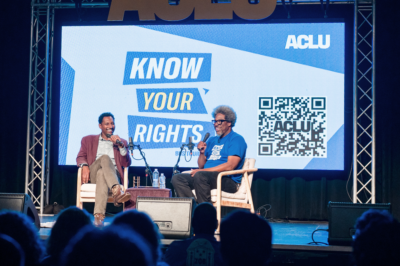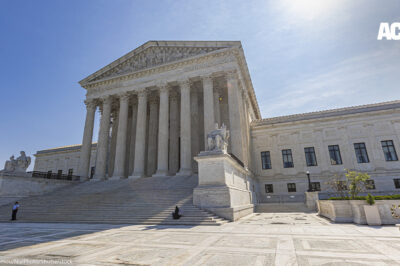NYCLU Makes 35+ Years of NYPD Misconduct Data Available to Public
NEW YORK – Today the New York Civil Liberties Union published the full database of NYPD officer misconduct reports held by the New York City Civilian Complaint Review Board (CCRB), the independent agency that investigates complaints about police abuse of civilians. Live at , the database contains comprehensive information about more than 320,000 misconduct complaints dating back to before 1985.
“Until now, the police accountability process has been at the discretion of the NYPD, which determines which CCRB investigations result in discipline and what information is revealed from that process,” said Christopher Dunn, Legal Director of the NYCLU. “History has shown the NYPD is unwilling to police itself. The release of this database is an important step towards greater transparency and accountability and is just the beginning of unraveling the monopoly the NYPD holds on public information and officer discipline.”
The database contains information about 323,911 complaints about 81,550 different officers. Only 8,699 complaints led to an NYPD penalty. 19,833 officers were named in five or more complaints, however, only 12 officers were terminated or dismissed by the NYPD, according to the dataset. 20,826 of the complaints were substantiated by the CCRB.
The NYCLU obtained the full records of the database from the CCRB through a FOIL request before the city’s misconduct database became the subject of a lawsuit filed by a group of police, correction, and fire unions against the mayor and the CCRB. As the result of an order in that case, the CCRB is blocked from further sharing this information with the public, which makes the NYCLU’s release all the more important.
The database was originally intended to be published on July 23. However in a hearing on July 22, the court barred the NYCLU from publishing or sharing the records. The judge’s stay was extended by the Second Circuit, prohibiting the NYCLU from publishing the database. Today the Second Circuit lifted the gag order.
In June 2020, the state legislature voted to repeal Section 50-a of the Civil Rights Law, the 44-year old statute often misinterpreted to shield records of officer misconduct. On June 17, Mayor Bill de Blasio announced he would direct the NYPD to create a database containing information on all officers who have faced departmental charges for misconduct.
“The NYPD needs to be accountable to the city it serves, and that cannot happen so long as they continue to operate behind a wall of secrecy,” said Donna Lieberman, Executive Director of the NYCLU. “As we reconsider and reimagine the role of police in New York, we need an honest reckoning with the NYPD’s long, violent history. Sharing information about officers with long histories of misconduct is a public safety imperative and a first step toward justice for people who have experienced police brutality. This data hardly reflects the entire story of broken windows policing and police impunity, but it helps paint the picture of the dangerous, violent outcomes created for so many Black and Brown New Yorkers as a result.”
The database holds records of all officers who have faced complaints from the public involving excessive force, abuse of authority, discourtesy and offensive language. The records include the officer’s name, rank, precinct or other command, the complaint, the CCRB’s finding about the validity of the complaint, and any discipline imposed by the NYPD. The database contains no records of cases the CCRB is still investigating.



